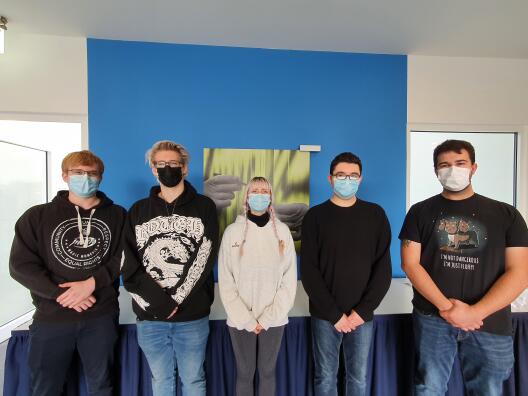Insights into the Work of a Chemical Technical Assistant at MEET

How does working life of a chemical technical assistant (CTA) look like at one of the foremost battery research centres in Germany? Apprentices from Hans-Böckler-Berufskolleg (HBBK), who are currently completing their final year of vocational training as CTAs, explored this question on a visit of MEET Battery Research Center at the end of September. MEET technician Jonathan Dylong, who has been working at the research institute for more than five years, gave the prospective young professionals an insight into his everyday work and the ultra-modern laboratories.
“Building battery cells for our researchers or external cooperation partners is one of my main responsibilities,” Dylong explained to the apprentices. This requires 15 precisely coordinated work steps. “This highly specialised workflow is needed to be able to vary each individual step and to produce a large variety of battery cells. In total, we produce about 2,000 battery cells per year on lab and test scale,” the MEET technician described his work. Most of this work takes place in the MEET laboratories. There, he demonstrated to the students how electrolyte formulations can be created, electrochemical measurements taken and coin cells assembled fully automatically using a computer-assisted method called high-throughput screening.

About the Vocational Training as a CTA or a Chemical Laboratory Technician
Since 2003, the HBBK has been offering vocational training as a CTA, which is currently being completed by 65 persons. The entry requirement is the secondary school certificate. With the qualification as a recognised CTA, the apprentices also obtain the entrance qualification for universities of applied sciences.
In cooperation with the HBBK, the University of Münster also offers vocational training as a chemical laboratory technician. The practical part takes place in the laboratories of an institute of the Department of Chemistry and Pharmacy at the University of Münster. The institution changes every four to six weeks so that the apprentices get an all-round view of the department. The theoretical part takes place at the HBBK.

